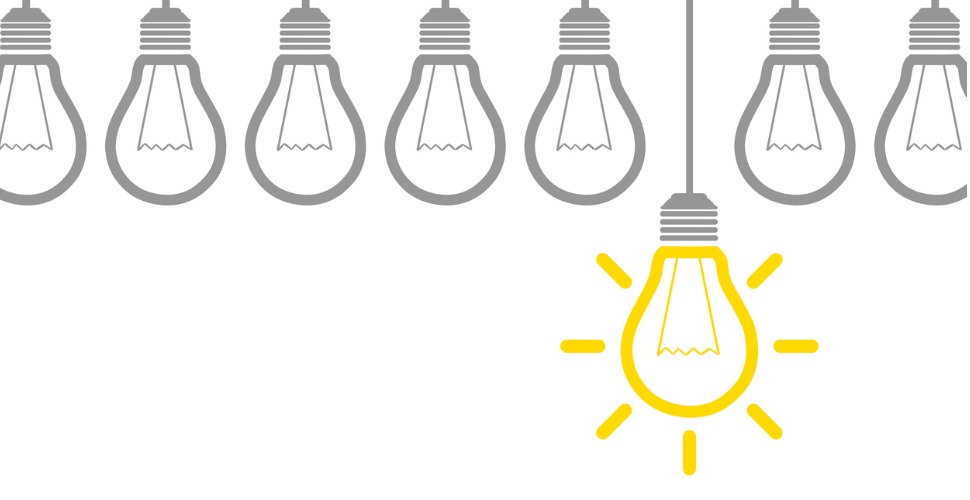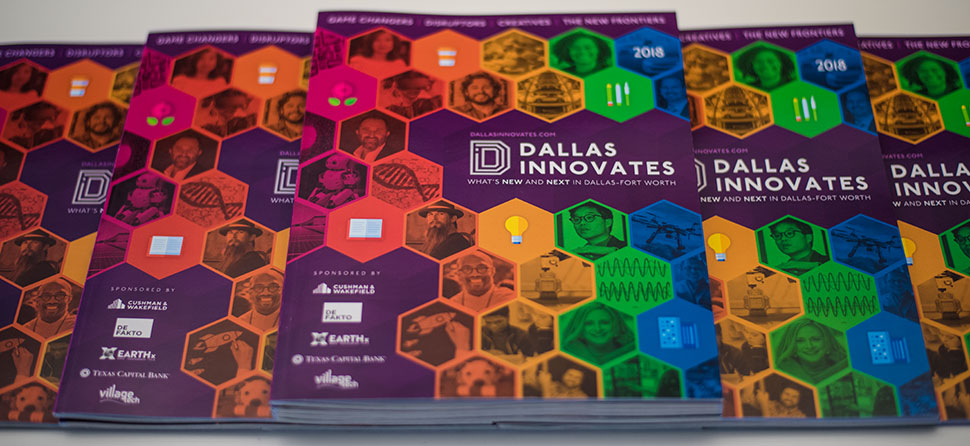Research and development play a starring role in the innovation landscape. Here are five folks hard at work helping to take Dallas-Fort Worth—and beyond—into the future.
Thomas Bamonte
Senior program manager, automated vehicles, North Central Texas Council of Governments’ transportation department
WHY HE’S A BIG DEAL: In his self-described “department of one,” Bamonte is the “go-to” person on all-things automous vehicle technology and policy in Dallas-Fort Worth. He’s helping guide the conversation around the future of transportation. Both the city of Arlington and UT Arlington will be one of nine Texas test sites for self-driving, low-speed vehicles, in which automation handles at least one main safety feature, such as steering or braking, that humans typically control.
GLOBAL BENEFITS: Adding low-speed vehicles provides new transport options for a city of 380,000 that is underserved in that arena. In addition to the UTA campus, automated vehicles might help with mobility in places such as the city’s sports stadiums and Entertainment District.
OF NOTE: By reducing the chance of human error, self-driving vehicles could reduce traffic fatalities by up to 90 percent by 2050, according to published accounts.
IN HIS OWN WORDS: “A statewide procurement of low-speed automated vehicles is in development and will help attract developer interest to Texas. Several real estate developers in Dallas-Fort Worth have expressed an interest in deploying automated vehicles on their campuses.”
Susan Franks
Clinical health psychologist and associate professor, University of North Texas Health Science
and
David Farmer
Interprofessional education director and assistant professor, UNTHSC
WHY THEY ARE A BIG DEAL: They’ve launched training for medical students in “emotional intelligence” or the ability to understand and manage one’s emotions to improve both communication with others and an individual’s own resiliency. The first pilot test involved training in 2016 for first-year med students at the Texas College of Osteopathic Medicine.
Training in EI may help reduce burnout rates that some believe may exceed 50 percent in physicians.
GLOBAL BENEFITS: Training in EI may help reduce burnout rates that some believe may exceed 50 percent in physicians. With medical care increasingly becoming a group endeavor, physicians can improve both their career prospects and their well-being by learning how to play better with others.
OF NOTE: When patients have compassionate and respectful relationships with their doctors, patients are more likely to follow the physician’s advice, tell the doctor more about personal medical issues, and be less inclined to sue over medical mistakes.
IN THEIR OWN WORDS:
Franks: “You cannot understand or relate to the emotions of someone else if you cannot understand yourself or distinguish your own emotions.”
Farmer: “We plan to implement EI training for our physician assistants and physical therapy students in the spring of 2018. We believe this education will become an initiative across all UNTHSC colleges and schools by 2019.”
Deborah J. Rhea
Professor of kinesiology and associate dean of research and health sciences, Texas Christian University
WHY SHE’S A BIG DEAL: Giving kids more time for outdoor play at school helps them focus better during class, Rhea has found through research for the LiiNK Center (Let’s inspire innovation ‘N kids).
GLOBAL BENEFITS: In addition to helping kids stay fit, giving them four 15-minute recesses daily — two before lunch, two after — has resulted in reductions in discipline issues and visits to the school nurse, Rhea has found.
OF NOTE: Exercise boosts the firing of neurons in the brain, which builds “highways” that strengthen creativity, problem-solving, focus, and overall memory, studies show.
IN HER OWN WORDS: “Children who are mainly inside can develop long-term anxiety disorders over time. When breaks are scheduled throughout the day, students are able to explore, socialize with their peers more regularly, and reboot their brains for another segment of learning.”
Robert Magnusson
Texas Instruments distinguished university chair in nanoelectronics at the University of Texas at Arlington
WHY HE’S A BIG DEAL: He’s using a $370,000 grant from the National Science Foundation to create engineered amplifiers and lasers at the scale of a nanometer. A sheet of paper is about 100,000 nanometers thick, according to the National Nanotechnology Initiative.
GLOBAL BENEFITS: The high-risk, high-reward project could help make cameras and infrared technology less expensive.
OF NOTE: Magnusson commercializes some of his UTA work through Arlington-based Resonant Sensors Inc., which does testing on the impact of substances like drugs on living things.
IN HIS OWN WORDS: “We’re taking research results and trying to make it useful in society.”
This story first appeared in Dallas Innovates 2018, an annual magazine that showcases Dallas-Fort Worth as a hub of innovation. Read more about the region’s game changers, disruptors, creatives, and our new frontiers in the digital edition.
DALLAS INNOVATES 2018: READ THE DIGITAL EDITION
![]()
Get on the list.
Sign up to keep your eye on what’s new and next in Dallas-Fort Worth, every day.


































































